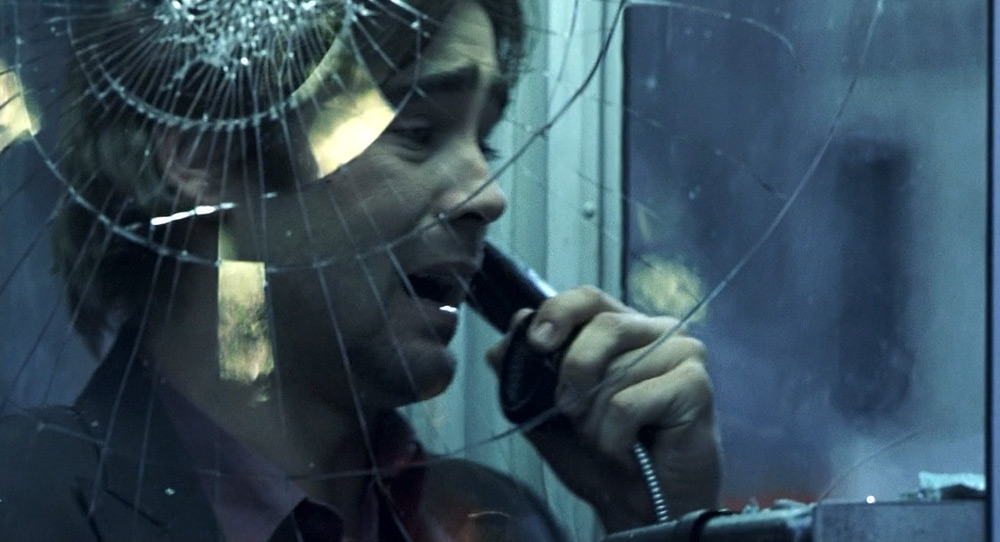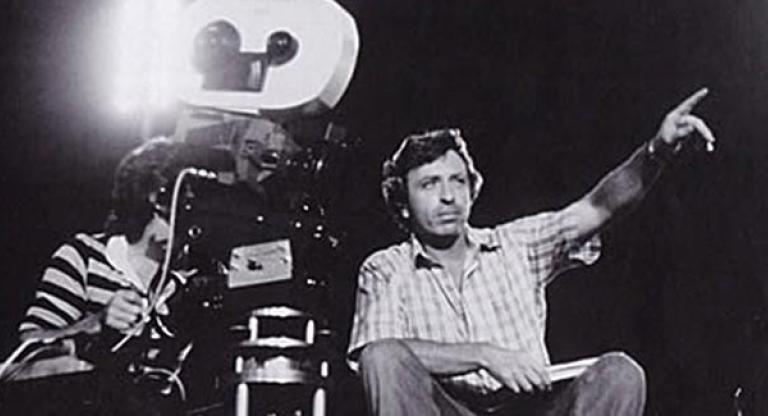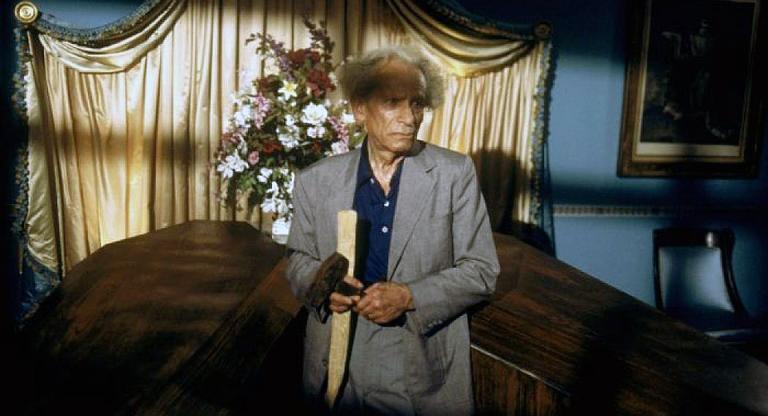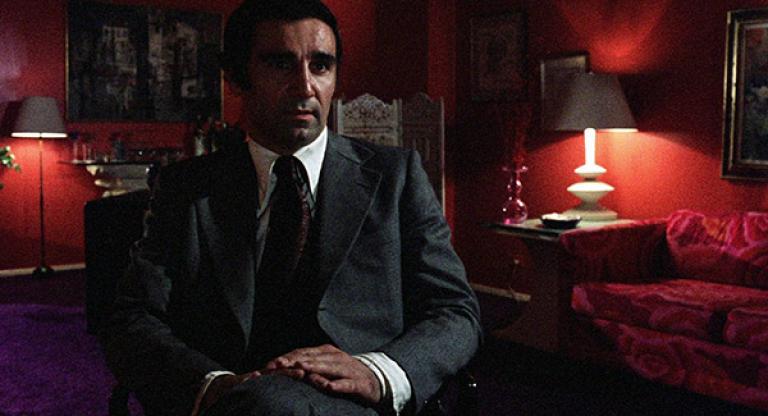According to screenwriter Larry Cohen, Phone Booth was conceived during a long lunch with Alfred Hitchcock in the early 1970s. Cohen, by then an established TV writer/director, tapped into the master’s predilection for high-concept gimmicks and confined characters, suggesting the germ of an idea. Hitchcock had set Lifeboat (1944) entirely in a lifeboat, and Jimmy Stewart had been confined to a wheelchair for all of Rear Window (1954). What if, Cohen pitched, there was a man stuck in a phone booth? Cohen, it must be said, was an inveterate hustler and yarn-spinner in the Orson Welles mode, so who knows how accurate that genesis tale is, or his claim that Spielberg was later seriously interested in directing the movie. In any case, the pair failed to expand the concept into an actual story during their lunch date. Eventually, after Hitchcock’s death and Cohen’s establishment as a low-budget auteur of high-concept sci-fi and horror movies, Cohen took inspiration from none other than Larry Cohen, whose 1976 masterpiece God Told Me To (also known as Demon) featured a sniper picking off New Yorkers after an encounter with aliens. Why is the man stuck in a phone booth? Because a sniper on the other end of the line will shoot him if he leaves.
After several false starts and redrafts to account for the dwindling population of phone booths, Phone Booth went into production in 2000 with burgeoning star Colin Farrell and director Joel Schumacher. The film breezes by with an old-fashioned single-mindedness until the credits roll at the 70-minute mark. It feels like a gently padded episode of “Alfred Hitchcock Presents,” with all the economic storytelling and unambiguity that implies. Farrell plays Stu, a vapid PR-hack who we meet power walking along the sidewalks of Manhattan while juggling multiple cell phones and concocting a bidding war between rival tabloids for cover stories pushing his “favorite” client. As he does weekly, he puts both cell phones down and enters the relative privacy of a phone booth to call an impressionable starlet he’s grooming for an affair. His glass-walled fortress of solitude is “the last of its kind” according to an introductory narration, and it’s due to be replaced by a bank payphone imminently.
A sanctimonious maniac (an unseen Keifer Sutherland) has been monitoring Stu’s transgressions, and when the latter autonomically picks up the booth’s ringing pay phone, he enters a game of coercive redemption. The voice on the line commands Stu to acknowledge the emptiness of his existence during confessional games in which lies and disobedience are punished with shots fired at innocent bystanders. Schumacher deploys multiple cameras and picture-in-picture split-screens to tell the story in real time, providing urgency through technique rather than depth of characterization. The method forecasts a 21st century in which everyone is constantly managing little boxes of moving images in order to triangulate a sense of whatever the hell is going on.
Farrell’s wrestling match with a Bronx accent serves his character’s lack of identity, and Stu’s gradual penance earns him our sympathy over time. Forest Whitaker’s performance as a police negotiator, on the other hand, is utterly incredible. His police captain is recently back on the job after a recent case resulted in a fatal shooting. It’s a tired setup, but all of the script’s subtlety is to be found in Whitaker’s character. What’s more, acting as though the role had been written by Eugene O’Neill, Whitaker deepens the material past any sane expectation for a low-budget studio thriller. Every other cop arrives on the scene with itchy trigger fingers and the conviction that Stu is perp and not victim. They castigate Whitaker for his sensitivity and scoff at his recently restored authority. He has been disassembled by department-mandated therapy sessions that leave him desperate to avoid another shooting and unsure about his own emotional boundaries. Much of this detail is in the script, while the rest is found in Whitaker’s voice and eyes. The movie didn’t need a moral center this affecting, but Whitaker casts a heartbreaking spell every moment he’s onscreen.
Phone Booth screens tonight, July 21, and on July 24, at BAM on 35mm as part of the series “NYC 2000s.”






